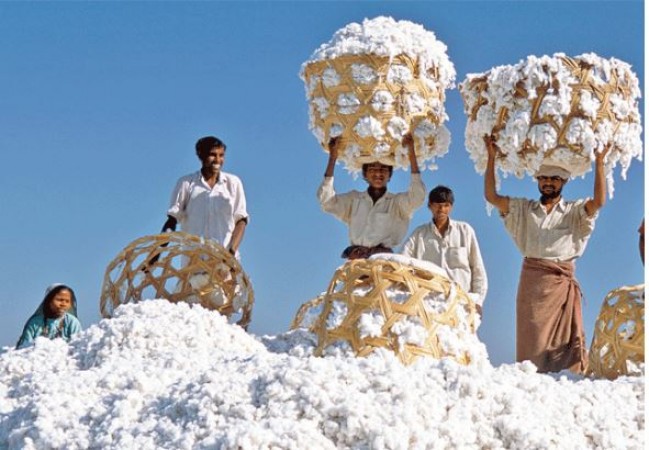
Cotton has played a significant role in India's history and economy for centuries, making it an essential and versatile crop. On World Cotton Day, let's explore the usefulness of cotton in India, its historical significance, and its impact on the nation.
Historical Roots:
Cotton has deep historical roots in India, with evidence of its cultivation dating back to ancient times. The Indus Valley Civilization, one of the world's oldest urban cultures, is known to have used cotton for textile production around 2500 BCE. Before the widespread use of cotton, people in India primarily relied on fabrics made from silk, wool, and other natural fibers.
Versatile and Comfortable:
Cotton is celebrated for its versatility and comfort. It is an ideal choice for clothing due to its softness, breathability, and absorbent properties. Cotton fabric keeps the wearer cool in hot climates, making it particularly well-suited to India's tropical climate. Cotton clothing is widely worn by people of all ages and backgrounds in the country.
Economic Significance:
Cotton has been a pillar of India's agrarian economy for centuries. It serves as a crucial cash crop, providing livelihoods to millions of farmers across the country. Cotton cultivation not only supports the agricultural sector but also fuels the textile and garment industries, which are significant contributors to India's GDP.
Cultural and Traditional Impact:
Cotton is deeply intertwined with Indian culture and traditions. Traditional attire, such as sarees, dhotis, and kurta-pajamas, is often made from cotton fabric. Handwoven cotton textiles, including the famous Khadi fabric, hold a special place in India's heritage. Mahatma Gandhi's promotion of Khadi as a symbol of self-reliance during the Indian independence movement further emphasized cotton's cultural significance.
Export and Trade:
Historically, India was known for its high-quality cotton textiles, which were in demand worldwide. Indian cotton was exported to various parts of the world, including the Middle East, Southeast Asia, and Europe, facilitating trade and cultural exchange. India's cotton exports contributed to its economic prosperity and global influence.
Challenges and Opportunities:
While cotton continues to be a vital crop in India, the industry faces various challenges, including pest infestations, water scarcity, and market fluctuations. However, technological advancements and sustainable farming practices offer opportunities to enhance cotton production and address these challenges.
In conclusion, cotton holds a cherished place in India's history, culture, and economy. Its usefulness as a versatile textile has been recognized for millennia, shaping clothing, trade, and traditions in the country. On World Cotton Day, India celebrates its enduring relationship with this remarkable crop and its enduring contributions to the nation.